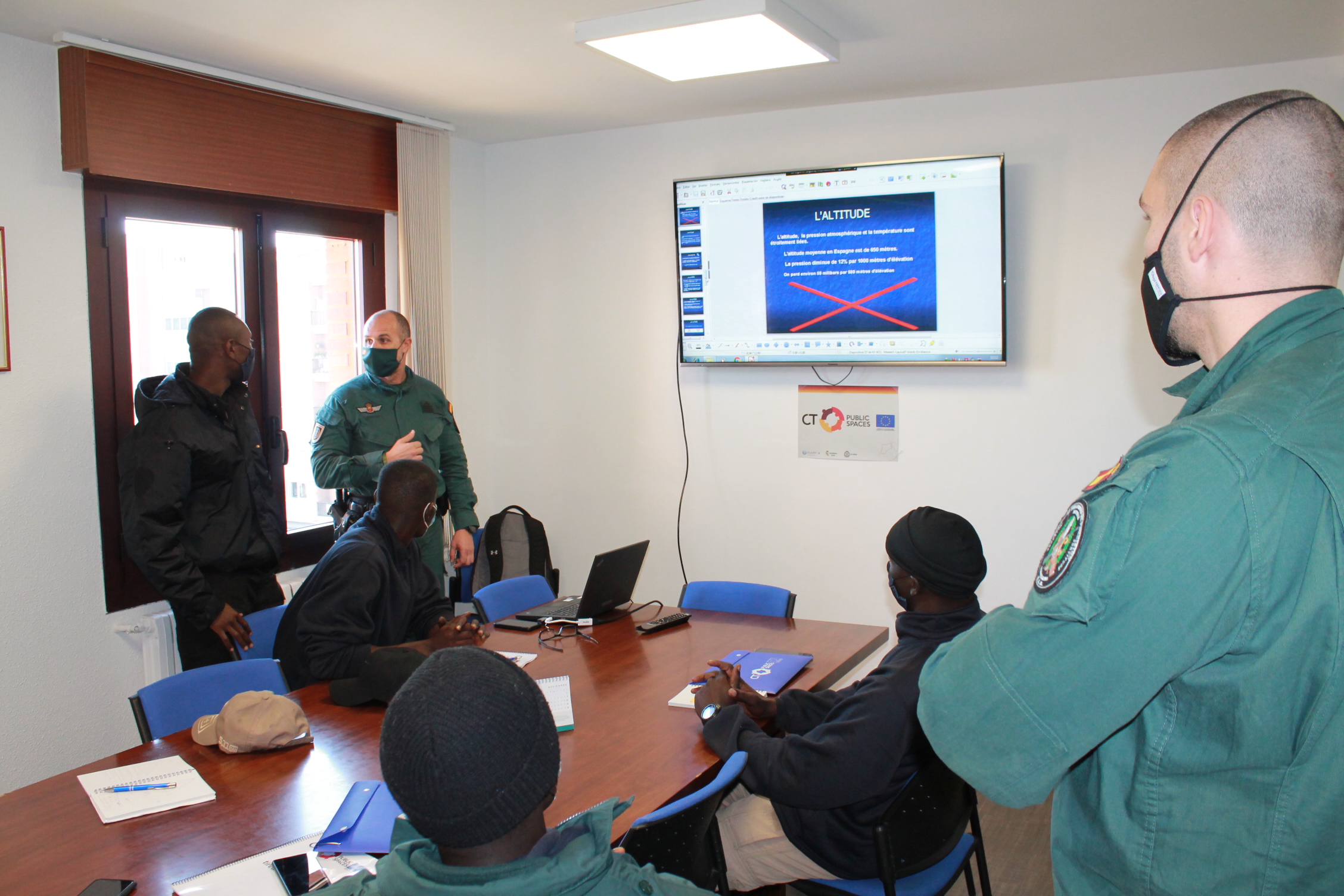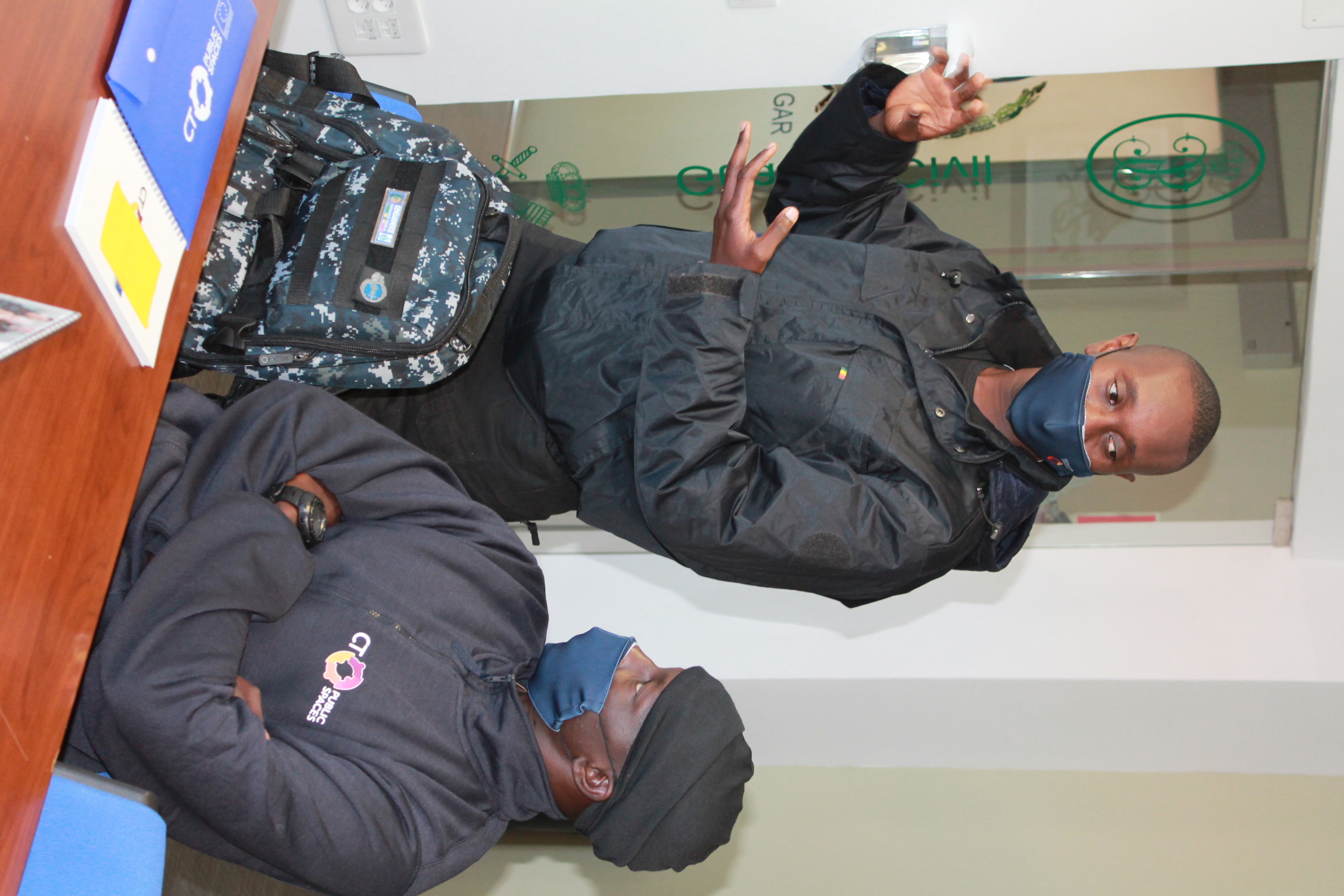Training in precision shooting and dog handling to protect public spaces is successfully completed
We interview a Senegalese team of 4 marksmen and women, who work together with the Guardia Civil in the framework of the European project CT Public Spaces
The CT Public Spaces project (funded by the European Union, managed by the FPI, implemented by the Spanish Guardia Civil and coordinated by FIIAPP) works on the exchange, development and improvement of the skills of professionals who are in charge of protecting public spaces in 3 partner countries. Consequently, the collaborating institutions will a have greater capacity to prevent and react to a possible terrorist threat.
We interviewed 4 representatives of the Senegalese police and national gendarmerie, to learn first-hand about the content and impact of the training courses that were carried out at the Guardia Civil's Polígono de Experiencias para Fuerzas Especiales (PEFE) in Logroño. This first experience will result in a team of trainers who, upon their return to Dakar, will pass on what they have learned with the support of project specialists.

What are the objectives of this training course?
This is an exchange of experiences financed by European cooperation, thanks to which members of the Senegalese police and gendarmerie have been able to work side by side with the Spanish Guardia Civil. Upon our return from training, we will be able to put the acquired knowledge into practice in Senegal and, in turn, we will become instructors to pass on what we learned to our colleagues in Dakar.
What activities are carried out as part of the training and what do they consist of?
The CT Public Spaces project deals with 11 different themes. In this specific training course, we have worked on 3 of them, which are a theoretical-practical programme for marksmen and women, another for handlers of dogs that are trained for intervention and finally, another for handlers of dogs which search for explosives.
Is there a difference between the weapons or techniques that are used in Senegal, and those that are used here?
There is not a big difference between the ones used here and the ones we have in Senegal. However, it is true that we distinguish between weapons used for police purposes, and those used for military purposes.
How will the training received here be used back in Senegal? What practical application does it have?
Once back in Senegal, we will include what we have learned here in the curriculum of the main training courses. In all our centres there are elite marksmen and women and dog handlers, especially in the special forces centres of the Senegalese National Gendarmerie (GNS) and the Senegalese National Police (PNS), who frequently receive personnel to train in both specialisms. Of course, the latter will also receive the training.
Is the training received appropriate to the Senegalese context, in terms of fighting terrorism and protecting public spaces?
Our day-to-day in Senegal includes making preparations for the fight against terrorism. We must be prepared to prevent attacks and that is why we train accordingly. This is why the training courses we received will be very valuable, so that, if one day there is a terrorist threat, we will know how to deal with it. For marksmen and women it is very useful, since they are exposed on the front line when there is a terrorist threat, which is very important. In addition, all anti-terrorism units have dog handlers. It is an experience in which everyone wins.
What was the most relevant part or teaching point of the training received?
Everything is very useful and it is undoubtedly an exchange thanks to which we all gain something. What has impressed us a lot is the professionalism that our Spanish colleagues have shown us, both when we work on the theoretical aspect and when we work on the practical part. Because of course, it is important to study and know the theory behind each exercise, but it is even more important to be as professional and rigorous as possible when it comes to putting it into practice, to be able to resolve matters and intervene immediately and effectively.



